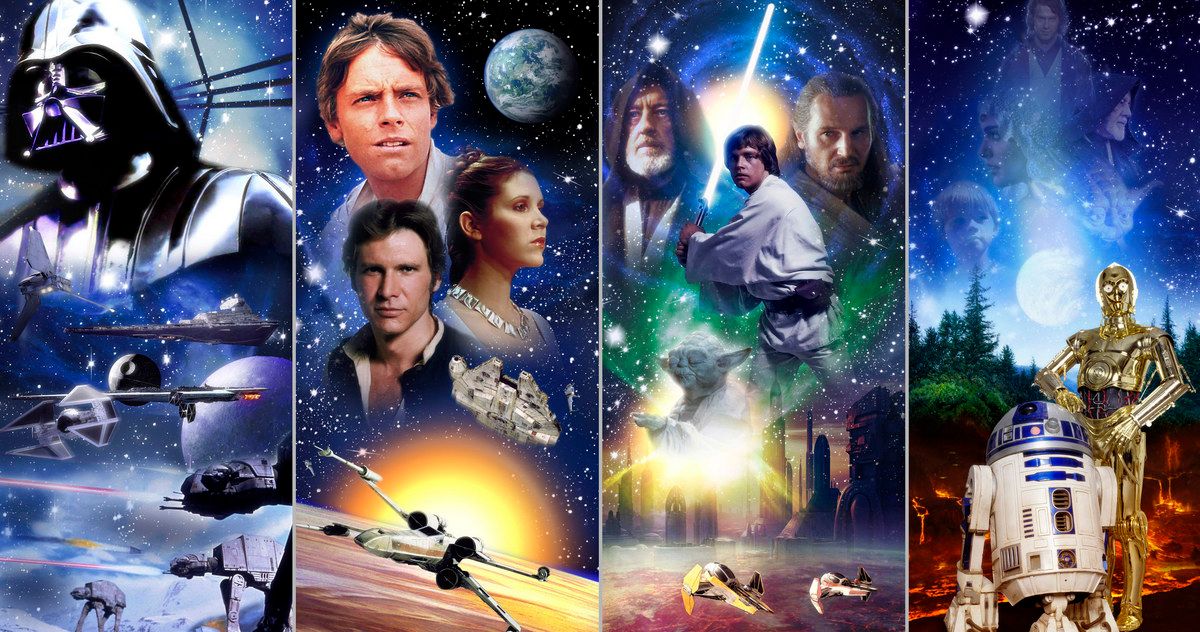In a new Wall Street Journal profile of LucasFilm's vice president of development, Kiri Hart, who is described as the Kevin Feige of the burgeoning Star Wars franchise, it was revealed that all of the ideas for Star Wars: Episode VII and every other franchise project, were developed at LucasFilm by her team, and that the franchise may delve into different genres.
Here's what Kiri Hart had to say, revealing that there is room for several genres to be explored while still keeping the same Star Wars tone intact.
"I think there are boundaries, but we don't want to rigidly define them. It's obviously not slapstick comedy, but there's room for many different stories and genres that still feel like 'Star Wars."
When asked if Star Wars Rebels marks a return to the same tone as the original trilogy, Kiri Hart had this to say.
"Many of us are of an age where we are original trilogy kids who are now pinching ourselves every day that we're working on Star Wars. There is a real affection we have for that because it hit us at the right moment. Because of the content that happens to be coming out right now, there's this original trilogy emphasis. But I know I have a lot of interest in all of it. I certainly am experiencing in talking to creative people a lot of interest in all areas of the Star Wars timeline. I think as we keep going we want to explore, to let the idea lead and then go with that."
Simon Kinberg, who is producing the movies and the Star Wars Rebels TV series, reiterated that Disney's approach is to move away from the prequel trilogy.
"If the people making the new Star Wars movies are going to lean into one trilogy or another, it's the original."
Those who have worked with LucasFilm since its acquisition by Disney have said that the studio is "tactfully trying to move away from the tone of the prequels, which were widely derided by fans as humorless and self-serious."
Kiri Hart, 43, is said to have a job that has never existed in Hollywood before, coordinating and supervising every single piece of new Star Wars content. She developed the ideas for Star Wars: Episode VII, its forthcoming sequels Star Wars: Episode VIII and Star Wars: Episode IX, along with the three spin-off films, all of which will hit theaters between 2015 and 2020, before taking those ideas to writers and directors. Here's what she had to say about her process.
"We pretty quickly arrived at a content plan that stretches out for several years and we didn't go looking for those ideas. Those existed internally. We were in a situation of looking for people to help us execute the ideas we had."
Kiri added that she enjoys pairing up filmmakers to the projects they're passionate about.
"I've been sitting down with filmmakers and writers, talking with them about what they love about Star Wars, and playing matchmaker."
Of course, when filmmakers like J.J. Abrams and Rian Johnson, who is writing and directing Star Wars: Episode VIII and Star Wars: Episode IX, come on board, certain story ideas will likely change and be developed further. J.J. Abrams and Lawrence Kasdan took over the writing duties on Star Wars: Episode VII from Michael Arndt, but that likely had to have met with approval from Kiri Hart first.
When Disney bought LucasFilm in October 2012, that announcement was paired with the Earth-shattering news that the studio is developing Star Wars: Episode VII, which is currently in production at Pinewood Studios in London. With this film kicking off a new trilogy, along with the spin-off movies, the TV series Star Wars Rebels and a series of comic books from Marvel, the Star Wars universe is bigger than ever, with all of these different projects in the same canon.
This is a departure from when George Lucas ran the company, with the original and prequel trilogies being considered canon, and the Expanded Universe of books and other materials not included. Kiri Hart revealed that she is passionate about telling narratives through different platforms.
"I'm crazily passionate about this idea of narratives travelling across different platforms. It just feels like a golden opportunity. This is a fictional universe that not only supports [narrative coherence] but invites it. In addition, we wouldn't be giving the right green space to our filmmakers if we mandated they stay within the stories that have been told [in books.]"
What do you think about these new developments? Chime in with your thoughts below.

